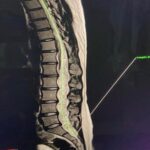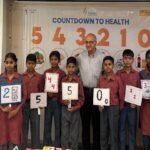“Many symptoms faced by women are passed off as anxiety”
Healthy Soch
New Delhi, March 10, 2019:
A few weeks ago, a study published in the Journal of Pediatric Psychology revealed the bias gender creates in the perception of pain. Another study published in The British Medical Journal found that women required three or more consultations, twice more often than men, before they were referred to a specialist. Studies have shown that on an average, it is more likely that women’s pain will be classified as psychogenic.
Women, seen as emotional, find doctors chalking their pain down to anxiety or stress, or other mental-health issues. Adding on to it, is the fact that there’s less research done on women’s health compared to men’s health: it took us years to instill the seriousness of period pain, and conditions like vulvodynia are still relatively unknown.
Speaking about this, Padma Shri Awardee, Dr KK Aggarwal, President, HCFI, said, “When a woman complains of symptoms such as breathlessness, it is passed off, quite often by themselves, as anxiety or a panic attack. This is because traditionally, women are the ‘nurturers’ and ‘caregivers’ and so tend to put the health and well-being of their family ahead of their own needs. They form the backbone of the family, which holds the family together. Therefore, women should receive equal attention and care as do the men in their families. For instance, heart disease has generally never been thought to be a woman’s disease. However, heart disease is the number one cause of death in women. Despite this, women do not get diagnosed timely or take treatment timely.”
It is very important to spread awareness on the fact that women too are prone to serious health problems, which if diagnosed and treated at the right time can help in preventing further complications.
Adding further, Dr Aggarwal, who is also the Group Editor-in-Chief of IJCP, said, “Heart attacks do occur in women, even young women. It is important to remember that women are more likely to have atypical signs and symptoms, which may be the reason for the delay in calling for medical help. Women are more likely to have pain in the jaw, neck or back (between the shoulder blades), unexplained weakness, shortness of breath, cough, dizziness or nausea. We must take care of all women in our families, their health and well-being, even if they don’t do it themselves.”
Some tips from HCFI
- Reduce your saturated fats intake to less than 7% of calories. Your diet should include oily fish at least twice a week as a source for omega-3 fatty acids.
- Make sure you do not take hormone replacement therapy, selective estrogen receptor modulators, antioxidant supplements (vitamin E, C and beta-carotene) and folic acid for primary or secondary prevention of heart disease.
- If you are 65 or older, ask your GP for routine low dose aspirin regardless of heart disease risk status. The upper dose of aspirin for high-risk women is 325 mg per day rather than 162 mg.
- Reduce bad LDL cholesterol to less than 70 mg/dL in case you have a very high-risk of heart disease.
Healthysoch







